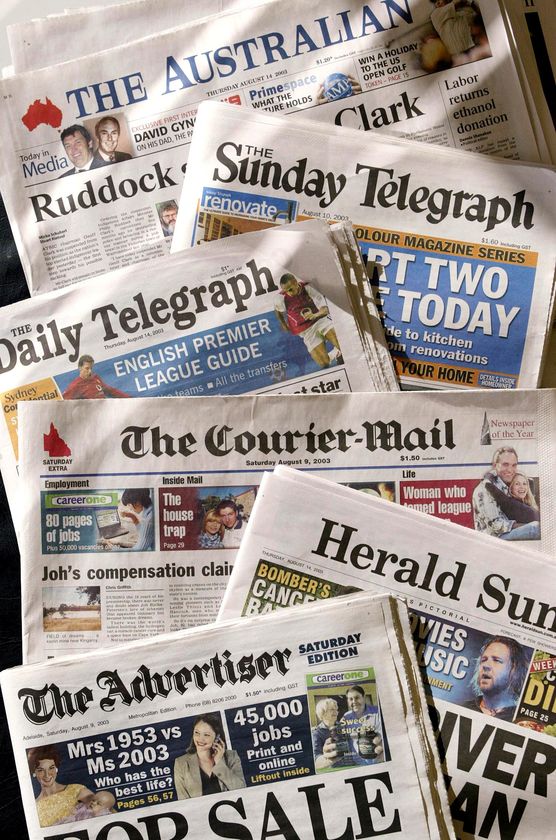7 Easy Facts About Online News Explained
7 Easy Facts About Online News Explained
Blog Article
6 Easy Facts About Online News Explained
Table of ContentsThe Buzz on Online NewsWhat Does Online News Mean?Excitement About Online NewsGetting My Online News To WorkFacts About Online News Uncovered
Figures for the proportion of people paying for online information were within the margin of error for both studies. Let's first think about people that have access to news that you would normally have to pay for. It makes good sense to begin right here due to the fact that some people have actually access to paywalled information via complimentary tests, by means of their task, and so forth.There are different forms of gain access to, yet the three most common are memberships to online news from a single brand, memberships to a print/digital package from a solitary brand name, and a registration to multiple brands accumulated in one location. Of these, digital-only registrations to a single brand are one of the most common kind of gain access to in all three nations.
Paid news aggregators are reasonably prominent in the US, generally thanks to Apple News+, but at the moment these are far less usual than registrations to solitary news brands. As we saw in the Exec Recap, people primarily have access to one of a little group of noticeable brands. In the United States, over half of these individuals have access to either the New York City Times or the Washington Message, and in the UK, it's The Times or the Telegraph.
Online News for Dummies
Most of this team have access because they are paying for subscriptions with their own cash 75% in Norway and the UK, and 84% in the United States. Online News. For under-45s the figure is lower. Among those 45 and over, the substantial bulk of those that have accessibility are paying with their very own cash.
In the United States and specifically Norway, many authors have introduced paywalls, which implies more people will be asked to pay perhaps increasing a sense of deficiency and creating a feeling that information can be worth spending for. In the UK, by contrast, just a fairly handful of publications attempt to charge for information.
Hereof it interests compare the various reasons customers give up the United States and United Kingdom for paying for online information. In general, the most crucial factor is the diversity and top quality of the content. In both nations, customers believe they are getting better details than from totally free resources.

Facts About Online News Revealed
These extra components appear to be particularly valuable for retention as they develop practice and are much less replicable somewhere else. For Norwegians also the diversity of material triumphed along with comfort and simplicity of usage. 'Aftenposten is a severe newspaper with wonderful top quality', claimed one respondent, however it was striking that 'sustaining great journalism' is much less of a motivation (21%) probably because traditional media outlets are viewed as less polarised in Norway.
Furthermore, around half of those who presently have free gain access to say that they might start paying if their open door runs out. This is encouraging, and perhaps a lot more encouraging still is that these numbers imply retention prices that approach those for subscriptions to video and audio streaming solutions like Netflix and Spotify.
It can also be viewed as a beneficial reminder that individuals do not always subscribe permanently, and boasts regarding the variety of 'new clients' may not be informing the whole tale (Online News). There's considerable 'spin' in this field, as many people finish their totally free trials prior to they need to pay, or simply terminate their registrations to spend their money on various other points
Women, 37, Norway It cost means way too much and I can get round the paywall. Male, 36, US Too pricey, felt there was nothing I could not obtain absolutely free on Apple Information. Women, 19, UK In the UK, the number of individuals that made use of to have access to paid information (10%) is close to the variety of people that presently have access (9%) with the comparable numbers from the United States and Norway higher still (albeit lower than the number of individuals with access).
Some Known Questions About Online News.
As we've already seen, existing clients are fairly pleased, but with revenue from electronic advertising and marketing unpredictable many publishers will be seeking to raise the variety of brand-new subscribers. In comparing our three nations we see some interesting differences that can inform publisher approaches. We observe a very high percentage (40% in the United States and 50% in the UK) that state that absolutely nothing can encourage them to pay.
But in Norway, where passion in news often tends to be greater and where complimentary news is this content a lot more you can try these out limited just 19% claim they could not be encouraged. Cost and convenience are several of the crucial elements that can make a distinction. In Norway, a third (30%) say they could subscribe if it was less costly and 17% if they can pay to gain access to several sites from a single repayment.
Publishers have actually significantly been supplying differential pricing to get service from those not likely to pay full cost (e.g. overseas consumers and students). Paying to avoid invasive promotions is one more potential course for authors, with around one in seven respondents in all three nations claiming this this could tempt them to subscribe.

Getting My Online News To Work
Some outlets now ask viewers to register with them in order to be able to access a tiny number of posts for cost-free. In all 3 nations less than half assume registering is a fair profession, yet it's also clear that people are not highly opposed either.
Between 13% and 22% in our 3 countries say they signed up to gain access to news web content in the in 2014. Some are additionally making use of other techniques to navigate paywalls such as resetting cookies, transforming their web browser settings, or also downloading devoted software application. Simply a third say they have actually ever before attempted to do something similar to this, as it Get More Information needs a certain degree of electronic literacy, and many are probably uninformed that is a possibility.
People have different sights concerning the legal rights and misdoings of attempting to sidestep paywalls. Couple of would certainly suggest that this is always reasonable, however some individuals do have bookings about crucial public-interest journalism only being available to those willing and able to pay for it. A paywalled expositions of the UK government's handling of the coronavirus break out by the Sunday Times caused a warmed dispute about the issue on Twitter, with some attempting to honestly share the complete post.
Report this page